WA boat arrivals reignite political contest over border protection
The arrival of 30 asylum-seekers from Pakistan and Bangladesh in WA, coupled with the High Court’s landmark ‘NZYQ’ decision, has reignited the political contest over border protection.
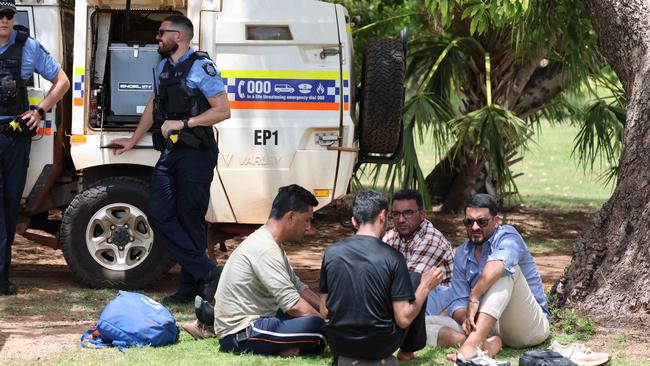
A group of about 30 asylum-seekers from Pakistan and Bangladesh who arrived by boat from Indonesia and wandered through crocodile-inhabited mangroves before being discovered near a remote Indigenous community have reignited the political contest over Australia’s border-protection regime.
The group – the second to have reached the Australian mainland since November – was discovered at 10am (AWST) in 32C heat seeking shade in the bushes by a road outside the small town of Beagle Bay, a former church mission with a population of 348.
By noon on Friday, three Australian Border Force officials had arrived from Broome – 128km south of the settlement – and were “processing” the arrivals, with Peter Dutton accusing the government of having “lost control of our borders”.
The Opposition Leader linked the arrival to Labor’s handling of the High Court’s landmark NZYQ decision in November, declaring that the people-smugglers could “pick out a weak leader, a weak prime minister and a weak minister, and this is what they have done”.
“We have warned about this for some time, releasing the 149 criminals, watering down Operation Sovereign Borders – that sends a clear message to the people smugglers,” Mr Dutton said. “I think clearly the government has not taken border protection seriously.”
The government faces a further legal problem, with a refugee lawyer saying on Friday that a significant portion of the people who remained in long-term detention could be released if the government lost a key case before the High Court.
Residents of Beagle Bay provided the latest boat arrivals with water and took them to shade. One of the arrivals spoke a little English and told the residents the group was from Pakistan.
About eight of the men were exhausted and some were sitting or lying on the ground as nurses from the local clinic dressed their wounds. One of the men spoke limited English and said he was from Bangladesh. He chatted to a local Catholic priest, to nurses and Border Force officials – at one point about cricket – as arrangements were made for the group to be transported to Broome.
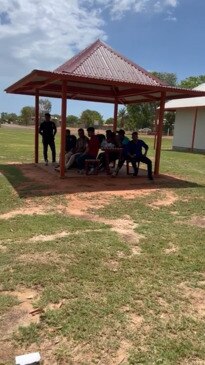
When asked where the boat was that had dropped them off, some of the men shook their heads and smiled.
Some had scratches and puncture wounds on their legs and feet from walking through the mangroves and the stretch of coast they traversed is home to many saltwater crocodiles.
There was no sign of a boat near Beagle Bay when the men were found, leading to speculation they were dropped off by Indonesian fishermen. This is how authorities suspect a group of 12 asylum seekers reached the Australian mainland in November. That group was found near the World War II Truscott airfield between Derby and Kununurra and was swiftly taken to Nauru.
Since the election of the Abbott government in 2013, it has been highly unusual for either the government or border force authorities to confirm the arrival of asylum seekers.
As immigration minister, Scott Morrison said the government did not discuss “on-water matters” and Labor has adopted this strategy in government. But the latest arrival forced Australian Border Force to issue a rare statement. “The ABF is undertaking an operation in the northwest of Western Australia. As this operation is ongoing, no further information will be provided,” it said.
New Operation Sovereign Borders commander, Brett Sonter, issued a statement on Friday night saying that the agency’s mission remained “the same today as it was when it was established in 2013”.
“Protect Australia’s borders, combat people smuggling in our region, and importantly, prevent people from risking their lives at sea,” Rear Admiral Sonter said.
The arrival of two groups of asylum seekers on the Australian mainland since November is a cause of deep concern to authorities who have until recently been able to intercept boats at sea and “screen out” asylum seekers with a series of questions that meet Australia’s obligations under the refugee convention.
Rote Ndao is one of the traditional departure points in southeastern Indonesia for those heading to Western Australia. Its police chief Mardiono said on Friday they had identified all the boats that could cross to Australia.
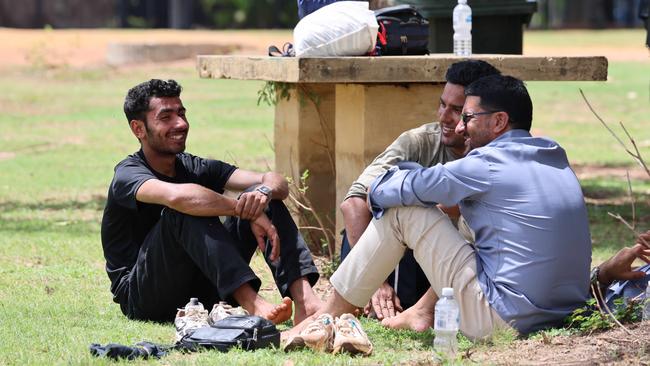
“Not all types of boats can make the journey there,” Mardiono said. “It requires people who understand the terrain, know the routes, and know the timing, and this requires experience. It could be that, if they manage to slip through in Australia, they departed from another point, maybe from Belu, from Kupang perhaps.”
The boat’s arrival came a day after Attorney-General Mark Dreyfus applied for an appeal to the full bench of the Federal Court to be moved to the High Court to determine whether Iranian citizen ASF17, who arrived in 2013, was being lawfully detained.
The High Court’s NZYQ decision on November 8 found that a non-citizen could only be detained if there was a real prospect of their removal becoming practicable in the reasonably foreseeable future.
An individual known as ASF17 filed an application in the Federal Court on November 16 arguing that his detention was unlawful. However, ASF17 had also refused to be “cooperative” with efforts to remove him from the country.
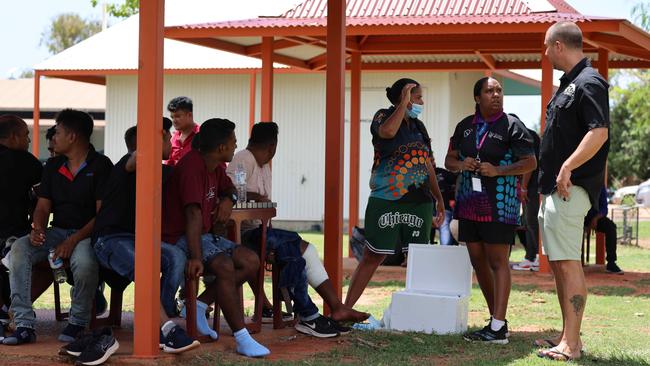
Lawyers acting for ASF17 accepted he had “good reasons for not co-operating” because he feared for his life if removed to Iran because of his sexuality, his acceptance of Christianity, his ethnicity as a Faili Kurd, and his opposition to mistreatment of women by the Iran government.
Federal Court judge Craig Colvin found the NZYQ case could not be applied in a situation where an “unlawful non-citizen embarks on a deliberate strategy of preventing removal from Australia.” An appeal to the full bench of the Federal Court was filed on January 24.
Mr Dreyfus’ application lodged on Thursday said there was now a “constitutional question” over whether the application of NZYQ should capture those who were “not co-operative with efforts to remove them”.
Sanmati Verma, acting legal director at the Human Rights Law Centre, told The Weekend Australian: “The question in ASF17 is whether and to what extent a person’s non-cooperation with efforts to remove them is relevant to the assessment of the lawfulness of their detention.”
“What ASF17 could do is open up a very complex realm of decision-making about why it is that people cannot and will not return.
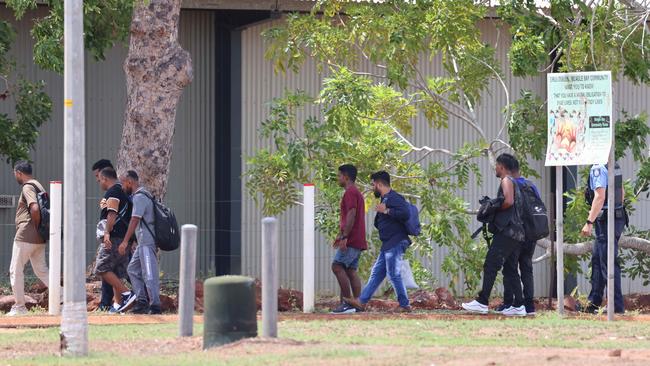
“That is going to become acutely relevant to the people in long term detention who are from Iran. That is a significant proportion of people who are in long-term detention today.
“The commonwealth policy .... has long been to coerce them into removal by detaining them for potentially a life long period until they crack. That has been the strategy because Iran will not accept involuntary returnees.
“The solution to NZYQ should have been the establishment immediately of an independent statutory review mechanism to assess the purpose and necessity of detention for all people currently detained. That is what the sensible response would have been.”

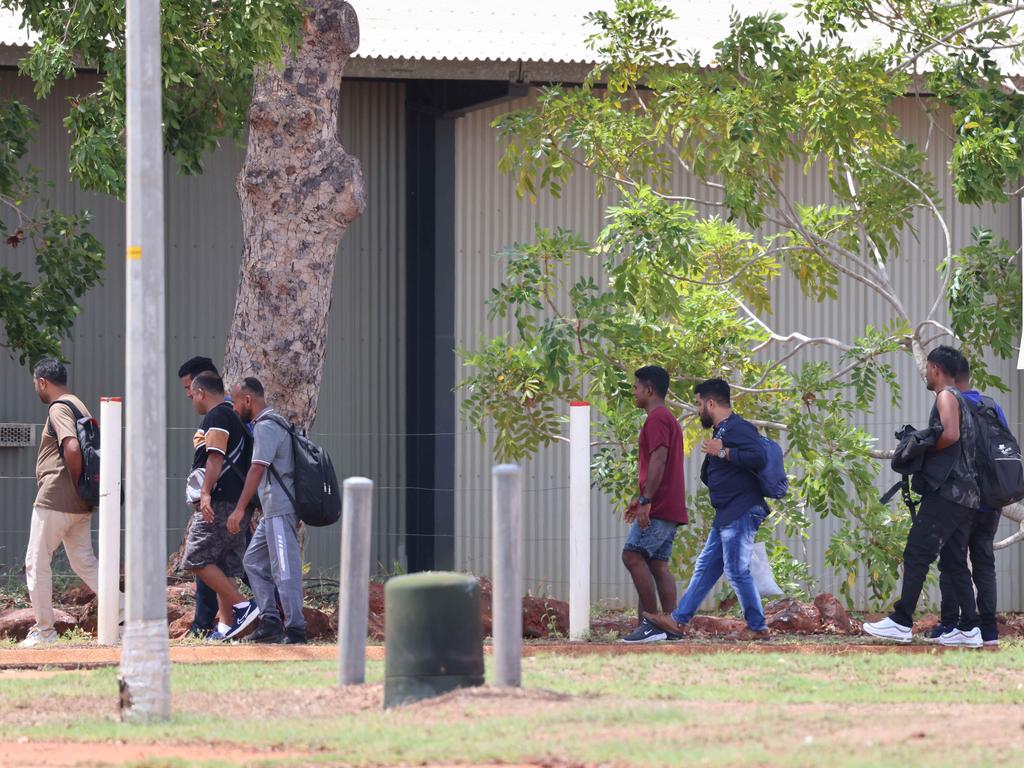


To join the conversation, please log in. Don't have an account? Register
Join the conversation, you are commenting as Logout